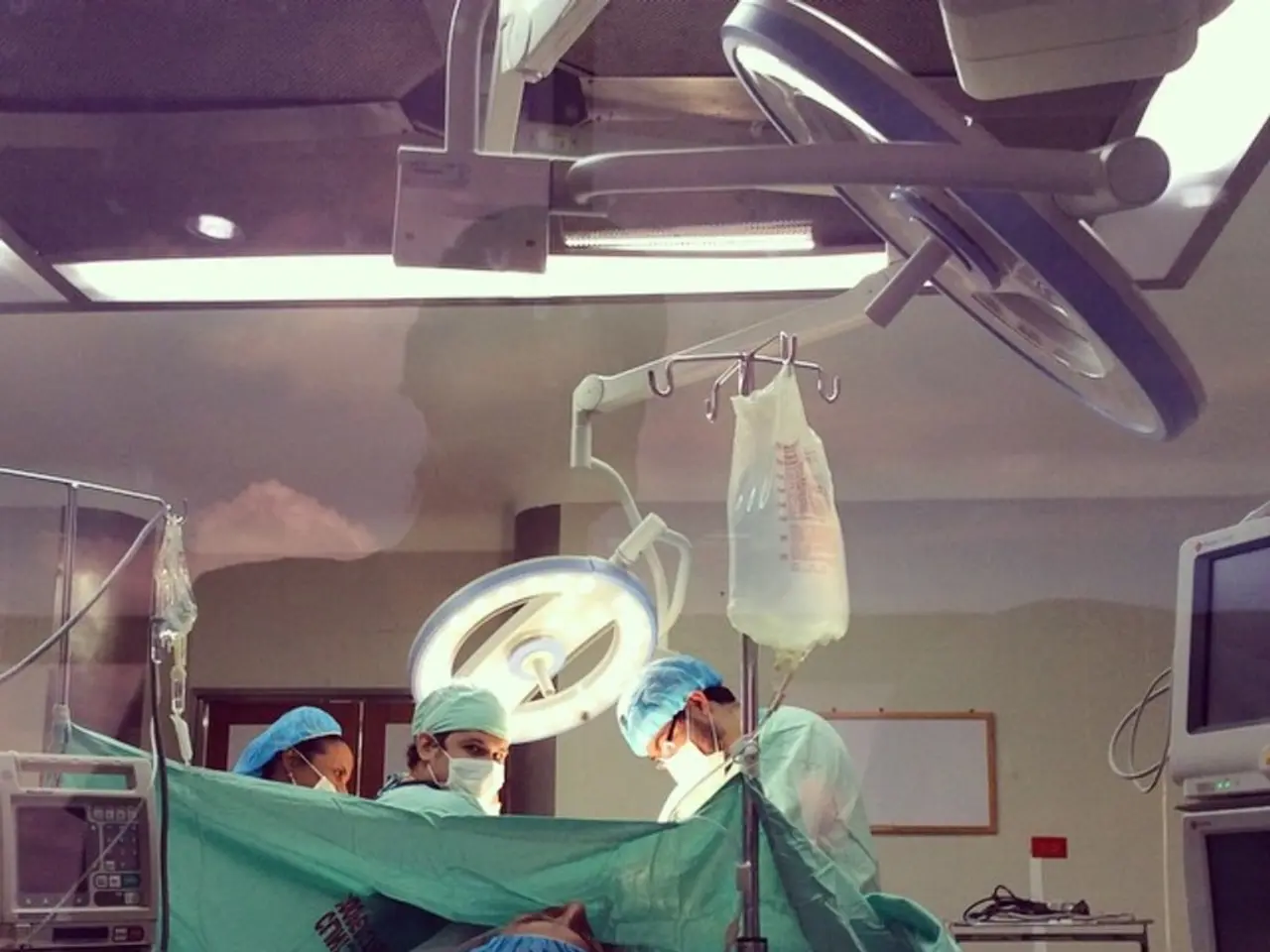Advanced robotic surgical equipment gains UK authorization
The UK's National Health Service (NHS) is set to revolutionise surgical care with the rapid expansion of robotic surgery systems, following approval by the National Institute for Health and Care Excellence (NICE).
According to patient organisations, the potential benefits of robotic surgery include faster recovery times, shorter hospital stays, quicker return to work, less pain, and reduced scarring compared to traditional surgery. These benefits are now set to become a reality for millions of patients, thanks to the NHS's strategic approach.
As of mid-2025, NICE has approved multiple robotic surgery systems, with the aim of increasing the role of robotic assistance in up to 90% of minimally invasive surgeries by 2035. Key systems currently in use include Intuitive Surgical’s da Vinci line (now at the fifth generation with da Vinci 5) and Medtronic’s Hugo system, which has received NICE recommendations and CE mark clearance for enhanced vessel sealing technology.
The expansion of robotic surgery in the NHS is supported by NHS England’s projection that the number of operations will increase from about 70,000 in 2023/24 to half a million by 2035. Robot-assisted methods are set to become the default for many keyhole surgeries such as cancer organ removal.
The Royal College of Surgeons (RCS) England strongly supports this transformation, emphasising the importance of safe adoption, surgeon training, and continued research to optimise patient outcomes. The potential impact on patient care includes improved precision and control during surgery, reduced recovery times and faster healing, expansion of surgical capabilities, and enhanced training and accreditation programs.
Dr Anastasia Chalkidou, programme director of NICE's HealthTech programme, stated that these technologies have the potential to transform both soft tissue and orthopaedic surgical care in the NHS. Currently, five systems are approved for soft tissue procedures, such as hernia repair, removal of tumours, and gallbladder removal. Six systems are approved for orthopaedic surgery, including full and partial knee replacement procedures and hip replacements.
The approved systems are capable of movements more precise than the human hand, offering a level of precision that could lead to potentially better outcomes and reduced risk of complications. NICE plans to increasingly adopt this approach for MedTech devices.
The UK Health Security Agency (UKHSA) has also launched an innovative metagenomic surveillance program aimed at enhancing health security. Meanwhile, further evidence will be collected over the next three years to demonstrate the cost-effectiveness of robot-assisted surgery as part of NICE's Early Value Assessment process.
For comments or questions about this article, please contact [email protected]. A roll-out of robotics in the NHS is being accelerated, with the transformative benefits in surgical outcomes and recovery experiences set to be felt by patients in the coming years.
References:
[1] NHS England. (2025). Robotic Surgery in the NHS: A Strategic Framework. Retrieved from www.england.nhs.uk/robotic-surgery
[2] Intuitive Surgical. (2025). da Vinci 5: The Latest Generation of Surgical Robotics. Retrieved from www.intusurg.com/davinci5
[3] Medtronic. (2025). Hugo: The Revolutionary Surgical Robot. Retrieved from www.medtronic.com/hugo
[4] Royal College of Surgeons England. (2025). Robotic Surgery: A New Era for Patient Care. Retrieved from www.rcseng.ac.uk/robotic-surgery
[5] NICE. (2023). Health Technology Evaluation: AI in Analysis of X-rays for Lung Cancer. Retrieved from www.nice.org.uk/ai-xray-lung-cancer
- The rise of robotic surgery in the NHS, driven by technologies like Intuitive Surgical’s da Vinci 5 and Medtronic’s Hugo system, promises to revolutionize patient care by offering potential benefits such as faster recovery times, shorter hospital stays, quicker return to work, less pain, reduced scarring, improved precision during surgery, reduced recovery times, and faster healing.
- With the NHS aiming to increase the role of robotic assistance in up to 90% of minimally invasive surgeries by 2035, digital health, health tech, and medical-conditions are set to intersect with science and technology in exciting ways, transforming health-and-wellness experiences for millions of patients.
- As the use of AI and machine learning in the analysis of X-rays for lung cancer (as demonstrated by NICE’s evaluation) and the metagenomic surveillance program launched by the UK Health Security Agency continue to mature, there is growing evidence to support the cost-effectiveness of these advanced technologies in enhancing patient care, reducing complications, and promoting health-and-wellness in the UK.




